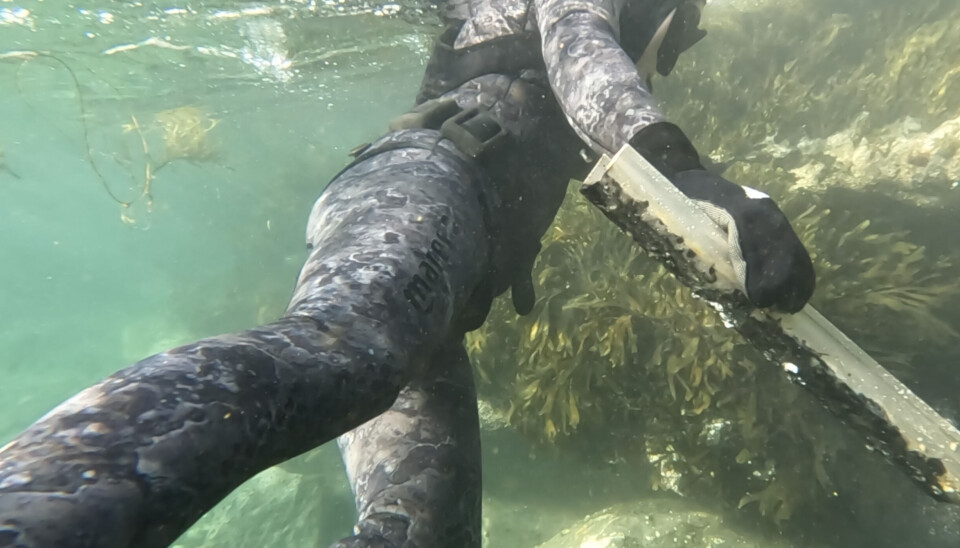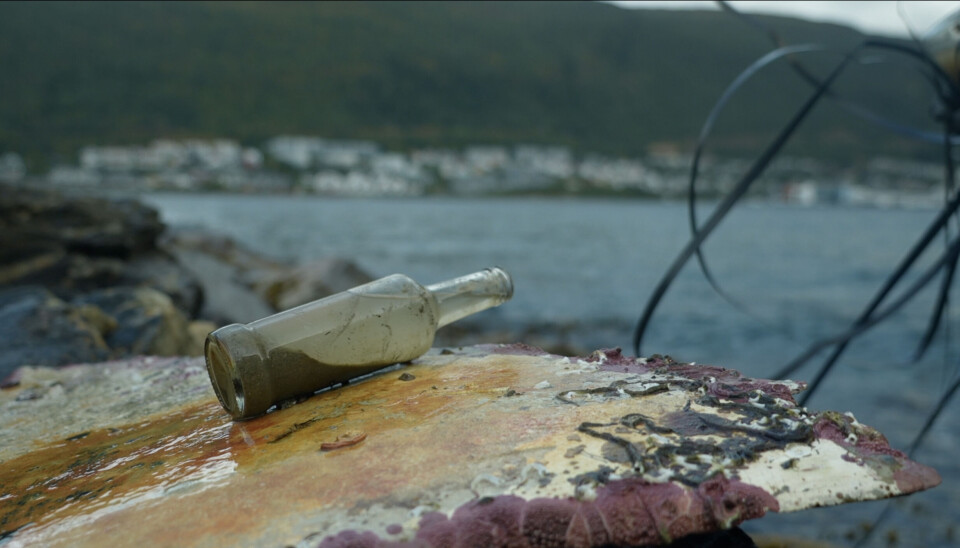“Bye-bye plastic!” Big ocean clean-up in Tromsø
Divers comb the seabed in search of rubbish that's been accumulating there for years.
Divers from the local Student Underwater Club (SUT) gathered on a September Sunday afternoon in order to make the ocean a bit cleaner.
Even though Norway is one of the cleanest countries in the world and the culture of dealing with waste is very much developed here, there are still always ways for large amounts of rubbish to end up in the ocean.
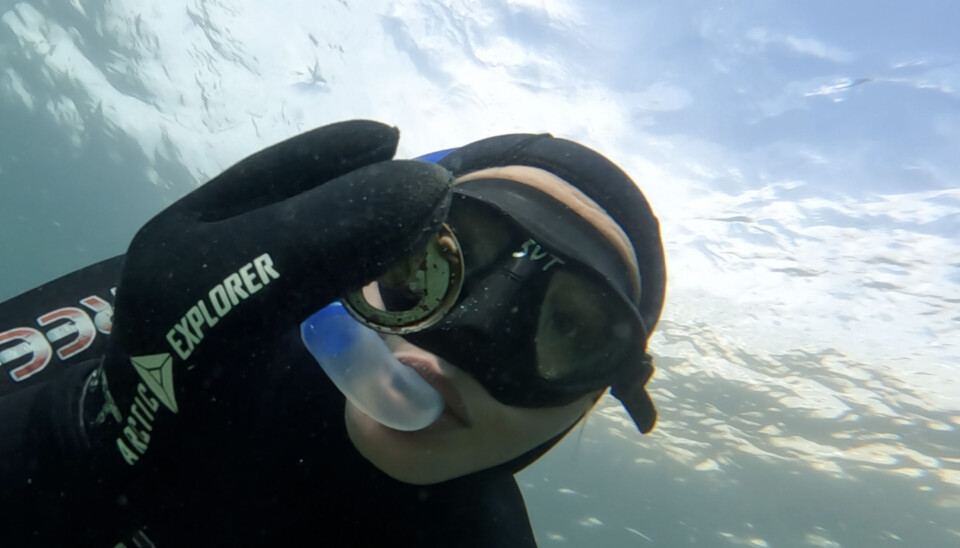
“In this place, the trash that is dispersed by the fjord, is gathered by the wind”, Sebastian, a club member told The Barents Observer, standing outside an apartment complex on the Tromsø island. “This is a place that steadily fills up. Even though it’s relatively clean here, but still, if you look for trash, you will find it”.
“We do the clean-up twice a year”, club member Henriette added.
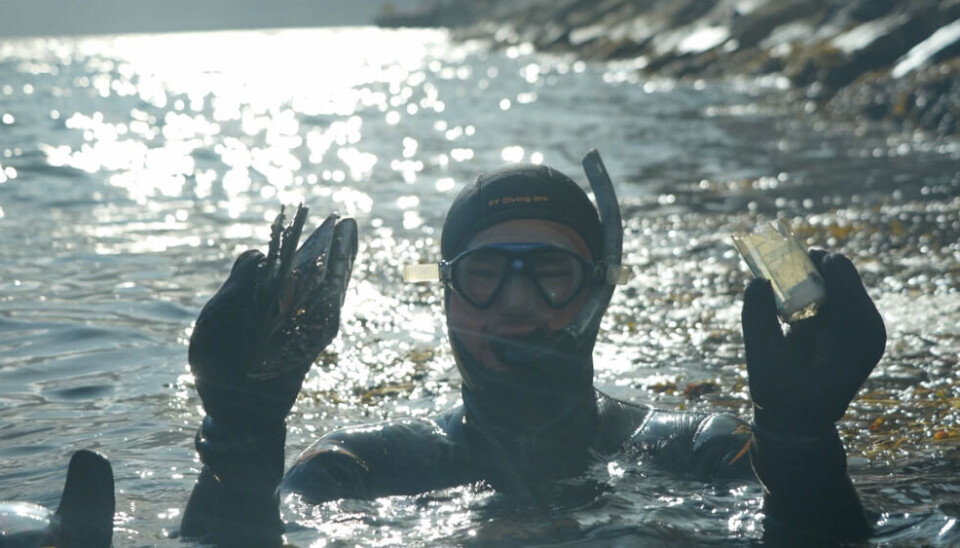
On this day, among other things, scuba and free divers picked up building waste, a frying pan and fishing gear. There have also been hundreds of plastic items collected, not only underwater, but also on the shoreline.
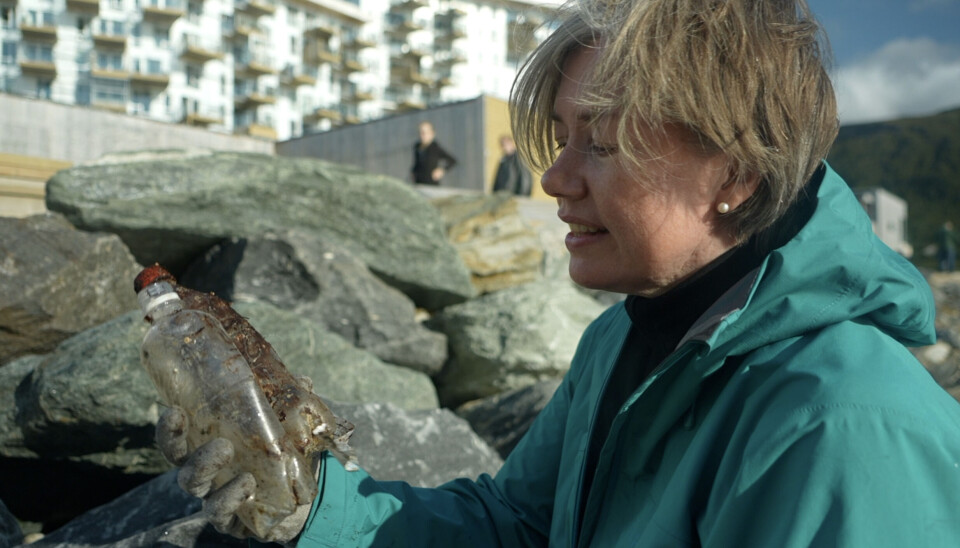
Club member Elisabeth crawled deep under a stone on the shore to reach for two old plastic bottles: “This plastic lives for 500 years until it breaks down and becomes microplastics. So it’s better for it to be in the garbage, rather than in the ocean”, - she told The Barents Observer.
Scientists estimate there are more than 170 trillion pieces of plastic in the world’s oceans. After this Tromsø clean-up there are now a few hundred less.
Activists sorted the rubbish at the shore, ready for local services to pick up later. Some items that the divers managed to raise were extremely heavy. For example, it took four people to lift a truck tyre out from the water.
“Don’t you get tired or bored to spend your Sunday like this?” I ask the diver Sebastian.
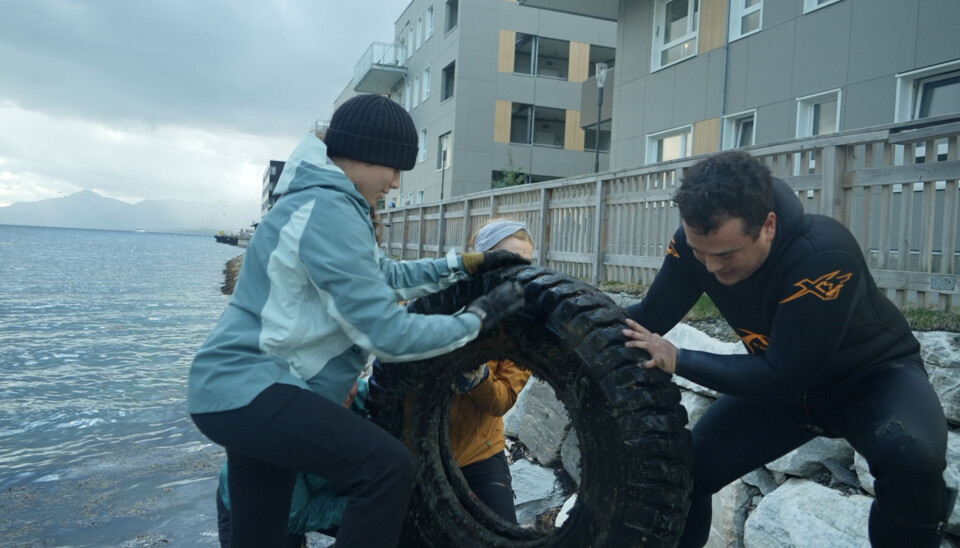
“You know, I get tired when I’m taking a diving trip and the first thing I see is a lot of trash. So spending a day cleaning it up is not that bad”, he said.
“I think it’s our duty to keep the ocean clean,” scuba diver Andrei told The Barents Observer, holding a bag full of glass Coca-Cola bottles.
“This sea is really important for everyone. So it’s important that we try to keep it clean”, freediver Raymond added.
